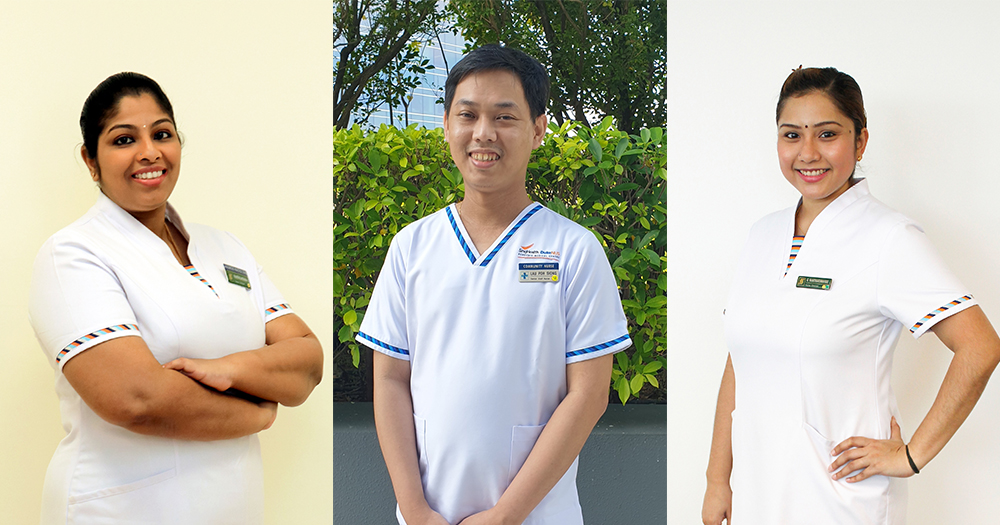“Oh! I thought you are one of the SIA girls!” said a patient, to Nurse Clinician Wong Yuk Meng, who took it as a compliment that she had been mistaken for one of the flight stewardesses working at the Singapore General Hospital (SGH) as a Patient Care Ambassador.
Wong is one of a diverse group of six nurses, each with different specialities, who spoke to Mothership ahead of Nurses' Day on Aug. 1.
Our interviewees shared with us their funny stories, most memorable experiences, and the unique challenges of their job, all based on their combined 85 years of nursing experience.
False alarms
Besides Wong’s experience with mistaken identity, other nurses shared how “false alarm” scenarios led to lighthearted moments.
Not code blue
“There was once when my team of nurses and I rushed to a patient’s bedside with an emergency trolley”, said Ng Zheng Yuan, a Nurse Clinician at SGH.
The patient had triggered the “Code Blue” alarm, used to call attention to a life-threatening medical emergency such as cardiac or respiratory arrest.
The team were relieved to find out, however, that the patient had mistaken the Code Blue button as a call bell.
“He was shocked to see the entire team as all he wanted was a urinal!” Ng relates.
“All of us, including the patient, had a good laugh.”
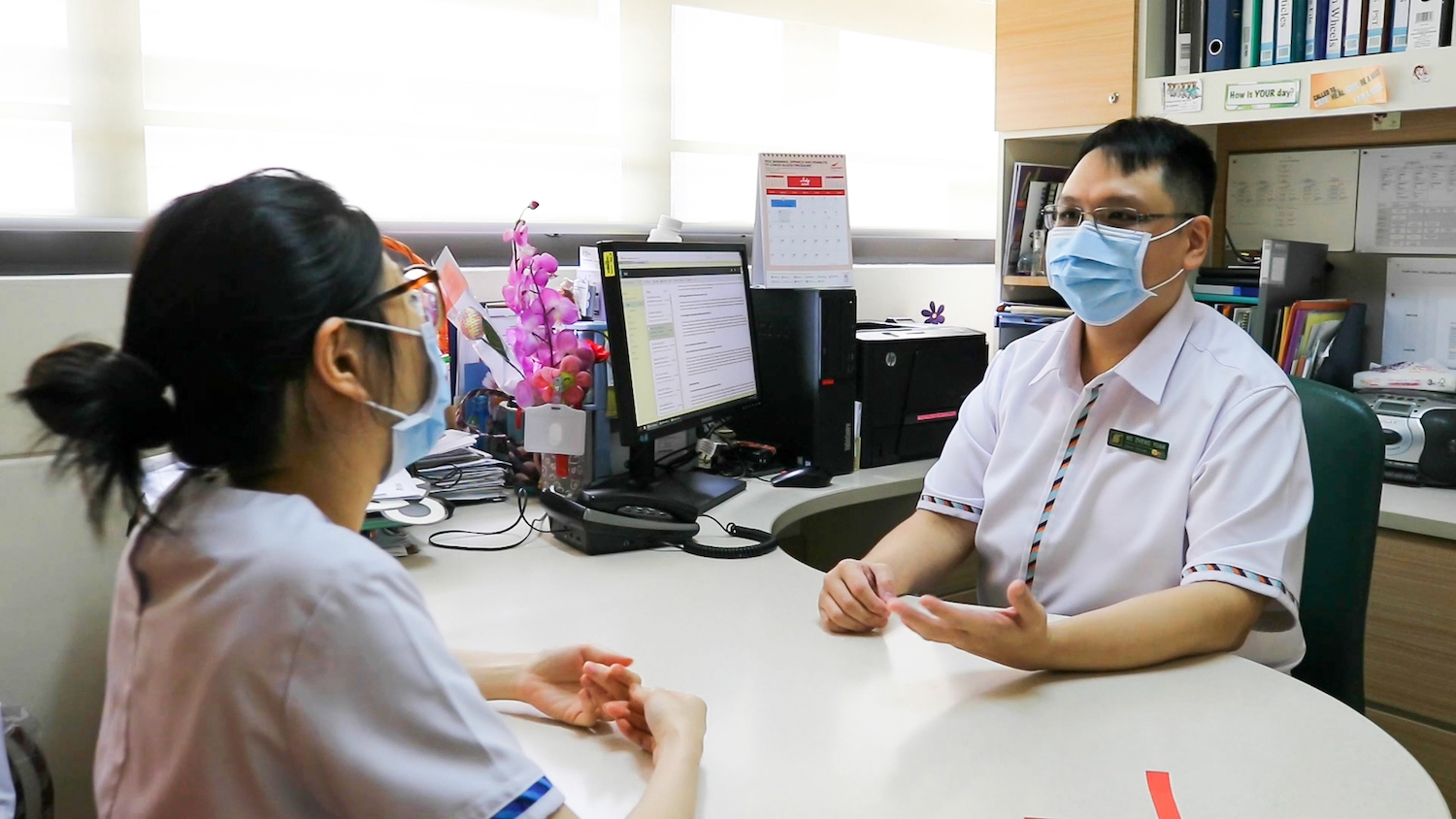 Ng Zheng Yuan (right), a Nurse Clinician who is mental health-trained, and a part of the SGH Peer Support team. Image courtesy of SGH.
Ng Zheng Yuan (right), a Nurse Clinician who is mental health-trained, and a part of the SGH Peer Support team. Image courtesy of SGH.
Just meditating
Nanthakumahrie D/O Gunasegaran, also a Nurse Clinician at SGH, recalled an episode where a male patient was found “sitting out of bed, slumped in a high-back chair with his eyes closed”.
Fearing something amiss, Nanthakumahrie approached the patient, calling out his name and tapping his shoulder.
He did not respond, and she was able to pick up a pulse, even though the patient’s breathing had slowed.
As the patient was “really tall” and “a bit on the heavy side”, Nanthakumahrie quickly called on five other colleagues for assistance to carry him to the bed in order to conduct a more detailed assessment.
However, as they began to lift the patient out of his chair, he “suddenly opened his eyes”, shocked.
The patient had been “in a deep sleep as part of his meditation exercise”, and was no doubt relieved that he had woken up in time to avoid being forcibly resuscitated.
"Not just about serving medication and answering call bells"
"Nursing is not just about serving medication and answering call bells", says Ng.
Instead, "it requires a lot of perseverance and critical thinking", he explains, as nurses often have to make critical decisions that will affect their patients medical status.
“What we do involves life and death”, adds Rajashulakshana D/O Rajaram, Nurse Clinician.
This has not stopped her, however, from finding humour in appropriate situations.
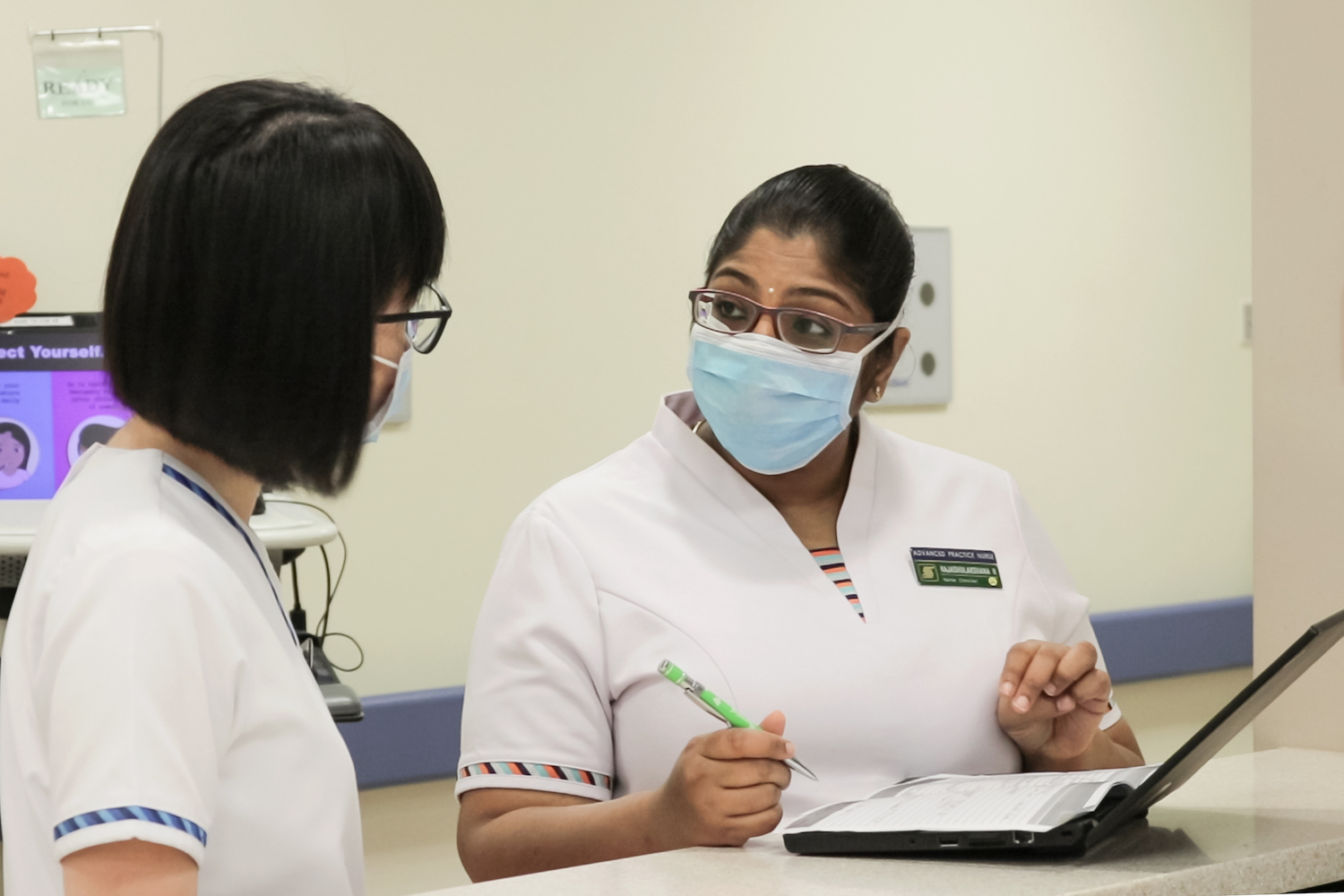 Rajashulakshana D/O Rajaram, Nurses Clinician at SGH. Image courtesy of SGH.
Rajashulakshana D/O Rajaram, Nurses Clinician at SGH. Image courtesy of SGH.
Once, she recalls, a patient had asked why he had been given an “expectorant”, as he did not understand the meaning of the word.
Without skipping a beat, Rajashulakshana said that it was given to him so that he could be “expected” to get well, which drew a laugh from the patient before she explained that it was a medicine to help with his cough.
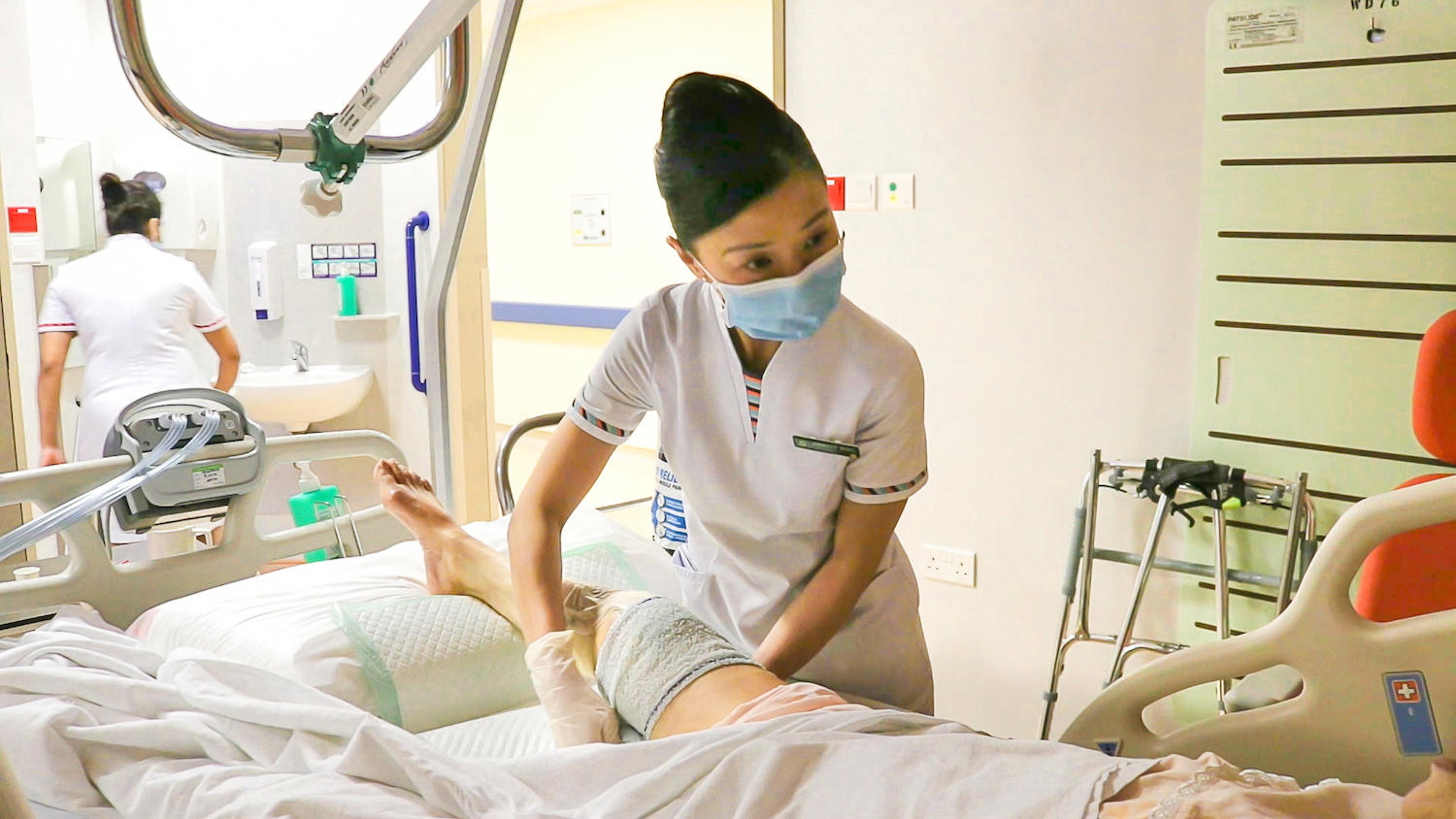 Wong Yuk Meng, a Nurse Clinician in the orthopaedic ward at SGH. Image courtesy of SGH.
Wong Yuk Meng, a Nurse Clinician in the orthopaedic ward at SGH. Image courtesy of SGH.
Wong highlights that a nurse's role goes beyond providing care, as "nurses are also our patients' advocates", being the ones who see to it that patients are linked up to the appropriate care resources, which cater to needs beyond their immediate medical condition.
The role of nurses in bringing in care resources is evident in the way nurses like Rajashulakshana have taken on a speciality of their own.
As an advanced practice nurse, she reviews patients with spinal injuries and complex wounds involving damage to bones and muscle.
“I had a patient who needed amputation, and he felt remorseful and worried.”
She tells us how she counselled the patient and shared about prosthetics, doing her best to reduce his anxiety even while managing her own emotions.
They met again some months later, and the patient cheerfully showed her his prosthetics, reporting that he had been coping well.
Different specialisations
"Many people may have the general perception that all nurses are the same, and bedside nursing care such as drawing blood. and applying dressings, is the only work that we do", says Nanthakumahrie.
However, that couldn't be further from the truth.
"Nursing, just like other medical professions, has many specialisations and skillsets."
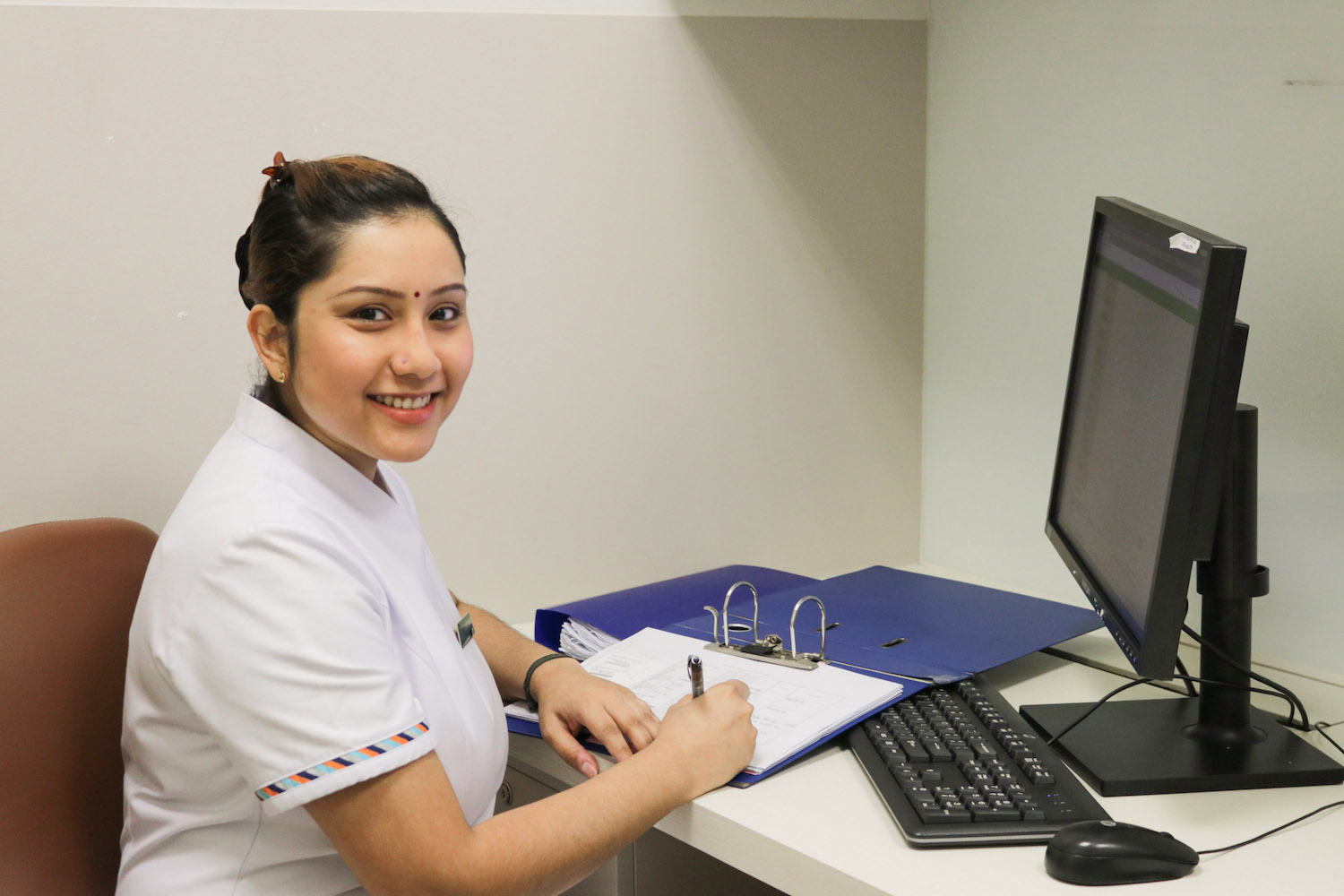 Nanthakumahrie D/O Gunasegaran, Nurse Clinician at SGH. Image courtesy of SGH.
Nanthakumahrie D/O Gunasegaran, Nurse Clinician at SGH. Image courtesy of SGH.
Nanthakumahrie herself is certified as a Wound, Ostomy and Continence nurse who conducts wound care reviews for patients, and mentors her juniors in professional wound care.
Not all nurses work in a hospital
Of course, not all nurses work in hospitals, as Lau Poh Siong, a community nurse from Changi General Hospital (CGH), can attest.
Unlike hospital-based nurses who work in what is called an acute care setting, community nurses like Lau focus more on “in-depth health coaching” for patients who are recovering at home.
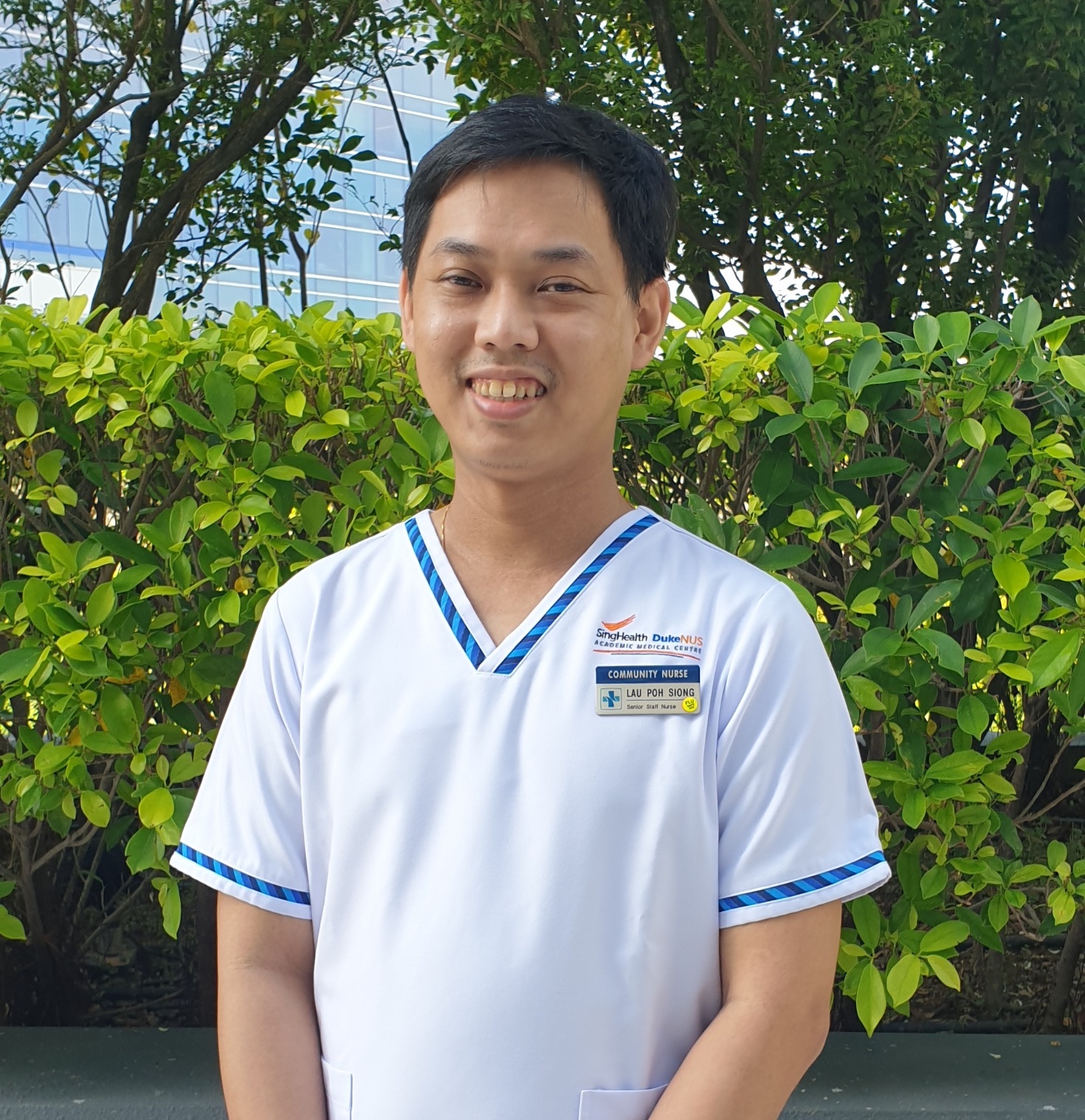 Lau Poh Siong, Senior Staff Nurse (Community Nursing) at CGH. Image courtesy of CGH.
Lau Poh Siong, Senior Staff Nurse (Community Nursing) at CGH. Image courtesy of CGH.
As community nurses can’t be there 24/7, their role involves engaging patients and families so that they can be involved in providing care as well.
“I find joy in imparting health knowledge to my patients, who are usually the elderly and frail,” says Lau.
"At their age, they tend to expect very little of themselves. But when I am able to help them be more empowered and confident to take charge of their own health and recovery, they are usually thankful that I am there to continue the care for them outside the hospital."
Working with people at their weakest
The nature of the job means that nurses are often dealing with individuals who may be in weaker states.
Managing these patients and making their lives more comfortable as they recover requires a deft touch. This often means going above and beyond the bare expectations of the job.
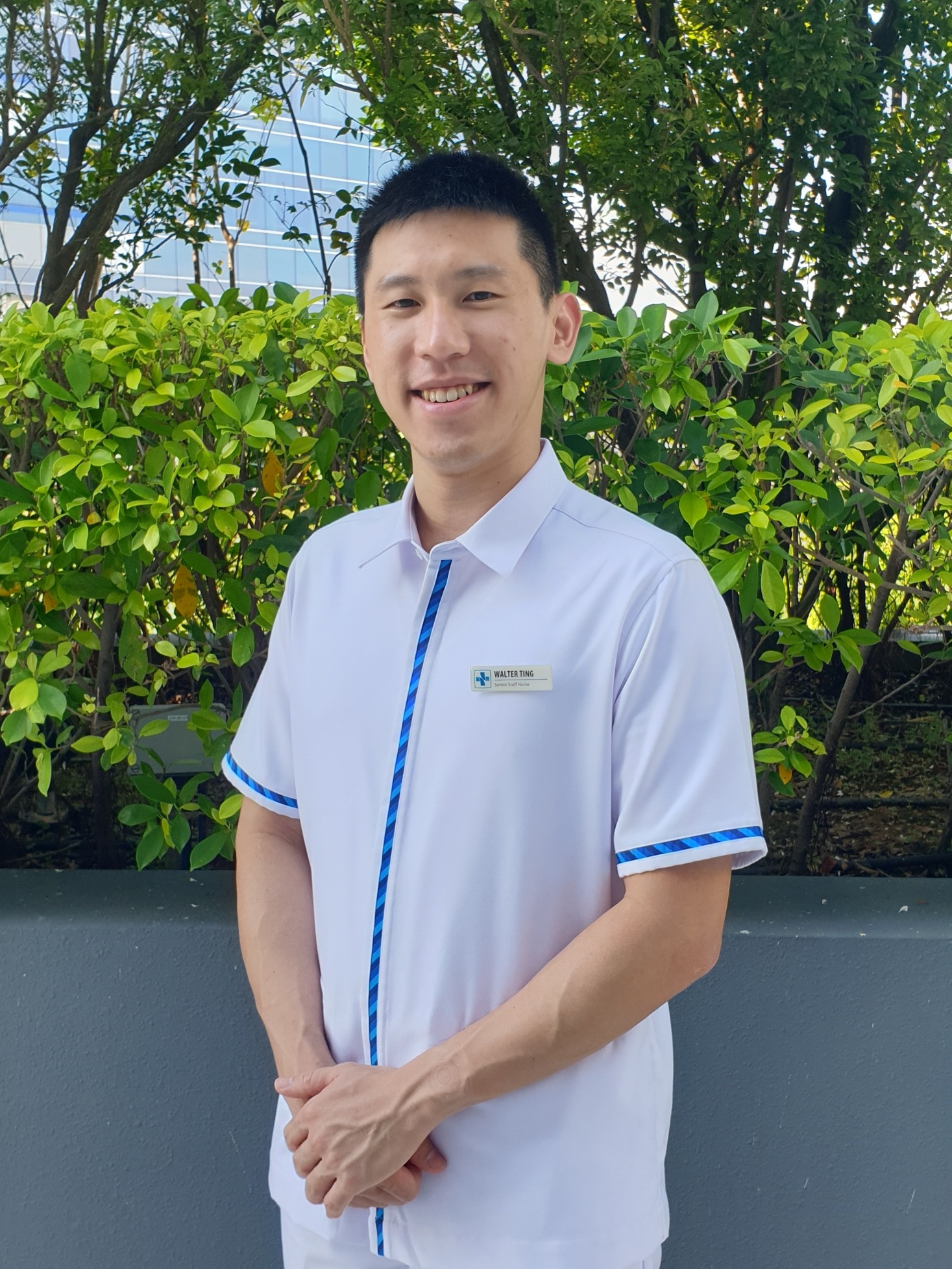 Walter Ting, Senior Staff Nurse at CGH working in the Intensive Care Unit. Image courtesy of CGH.
Walter Ting, Senior Staff Nurse at CGH working in the Intensive Care Unit. Image courtesy of CGH.
Walter Ting is a Senior Staff Nurse at CGH, specialising in critical care for patients admitted to the Intensive Care Unit (ICU).
At times throughout the pandemic, Ting’s patients included those suffering from severe symptoms of Covid-19.
While Ting admits that the risk of accidental exposure when providing care for such patients is real and palpable, he describes how a group of nurses in his ward went the extra mile to care for one anxious individual.
“(We) took turns to stay in the isolation room in full PPE (personal protective equipment) throughout the night to accompany a patient as we observed he was experiencing anxiety and discomfort with the ventilation mask meant to help him with the breathing.”
Thankfully the man’s condition gradually improved and he was later declared free of Covid-19.
Simple acts can be the most important
Rajashulakshana tells us about how the simple act of holding a patient’s hand can make a huge difference.
“In fact, sometimes this can be the most important act for the patient,” she says.
“For example, I once took care of an oncology patient who needed a potassium replacement. This can be a painful process to patients. Hence, I closely monitored the process and stayed with her while stroking her hand in order to reduce her discomfort.”
The patient's appreciation and gratitude still stand out as one of Rajashulakshana’s favourite memories from her career.
Gratitude from patients and their loved ones
Besides patients, and their fellow nurses, a group that nurses often work with are the families of their patients.
“I will never forget an experience I had with the daughter of a patient I cared for early in my career”, says Nanthakumahrie.
“The patient had passed on three years ago, but her daughter still remembers the care we gave her mother.”
During a chance encounter, the daughter expressed her gratitude to Nanthakumahrie, describing how the nurse’s work had helped her manage her grief over her mum’s passing.
“As nurses, we often do not realise that our actions at work, no matter how big or small, can make an impact and leave a lasting impression on our patients and their loved ones.”
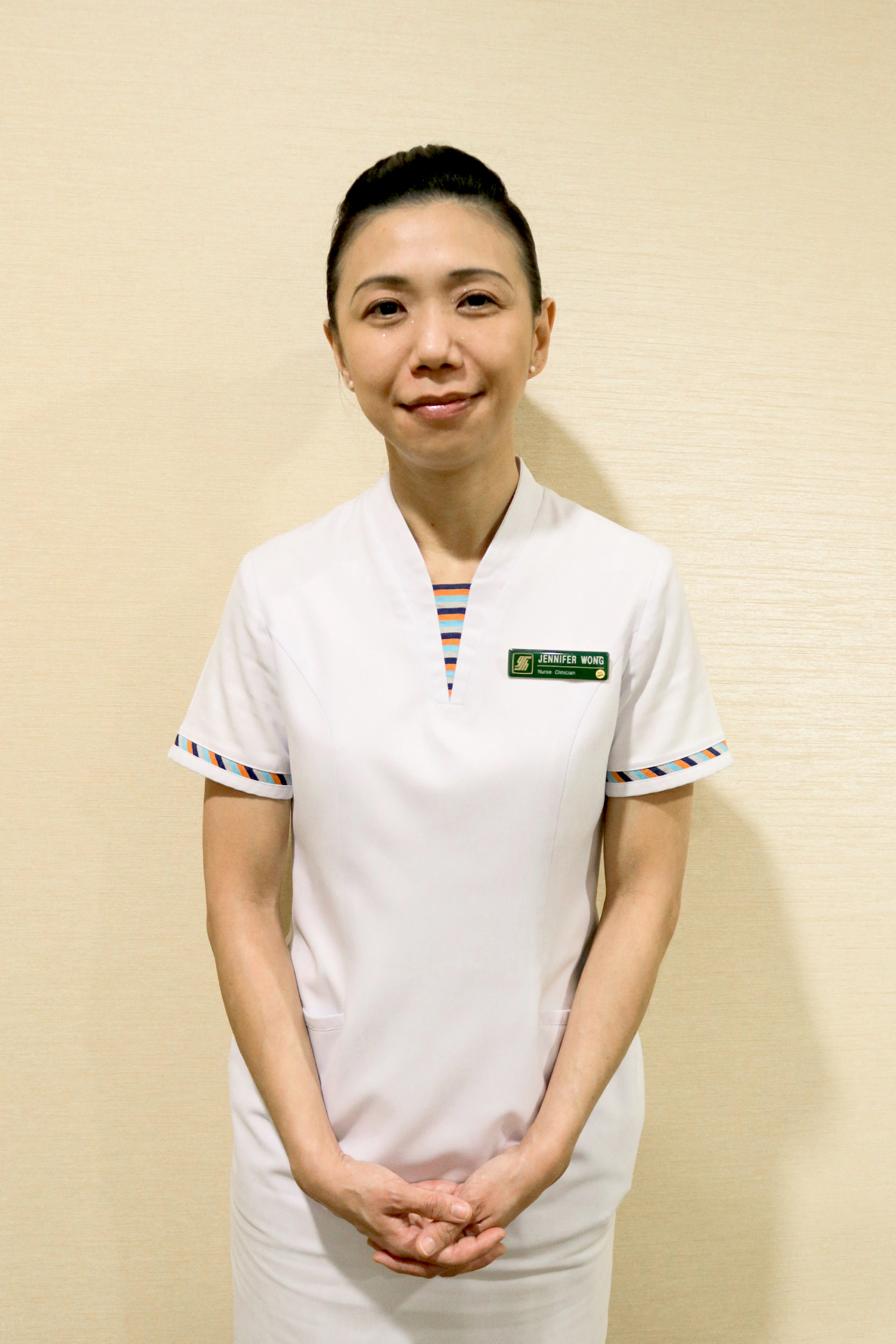 Wong Yuk Meng, a Nurse Clinician in the orthopaedic ward at SGH. Image courtesy of CGH.
Wong Yuk Meng, a Nurse Clinician in the orthopaedic ward at SGH. Image courtesy of CGH.
Wong remembers fondly one patient — a 90-year-old man with dementia — and his daughter.
“Throughout his stay in my ward, he was quiet and reserved,” she tells us, adding he did not usually initiate conversations and communicated most with open eyes and a nod.
“The day before his discharge, I made an effort to see him before he left. This time round, before I could say anything, he asked me ‘How are you?’”
Surprised, Wong says that the greeting was a moment of genuine delight for her.
“His daughter who was present by his bedside shared her joy and appreciation to us for the patient’s recovery.
Such appreciation from patients and their family members really matters. It keeps us energised and motivated to continue doing our best for our patients.”
Seeing patients discharged
Of course, the ultimate goal of the job is to see patients eventually recover, as many of our interviewees have alluded to above.
However, perhaps Ng puts it most succinctly.
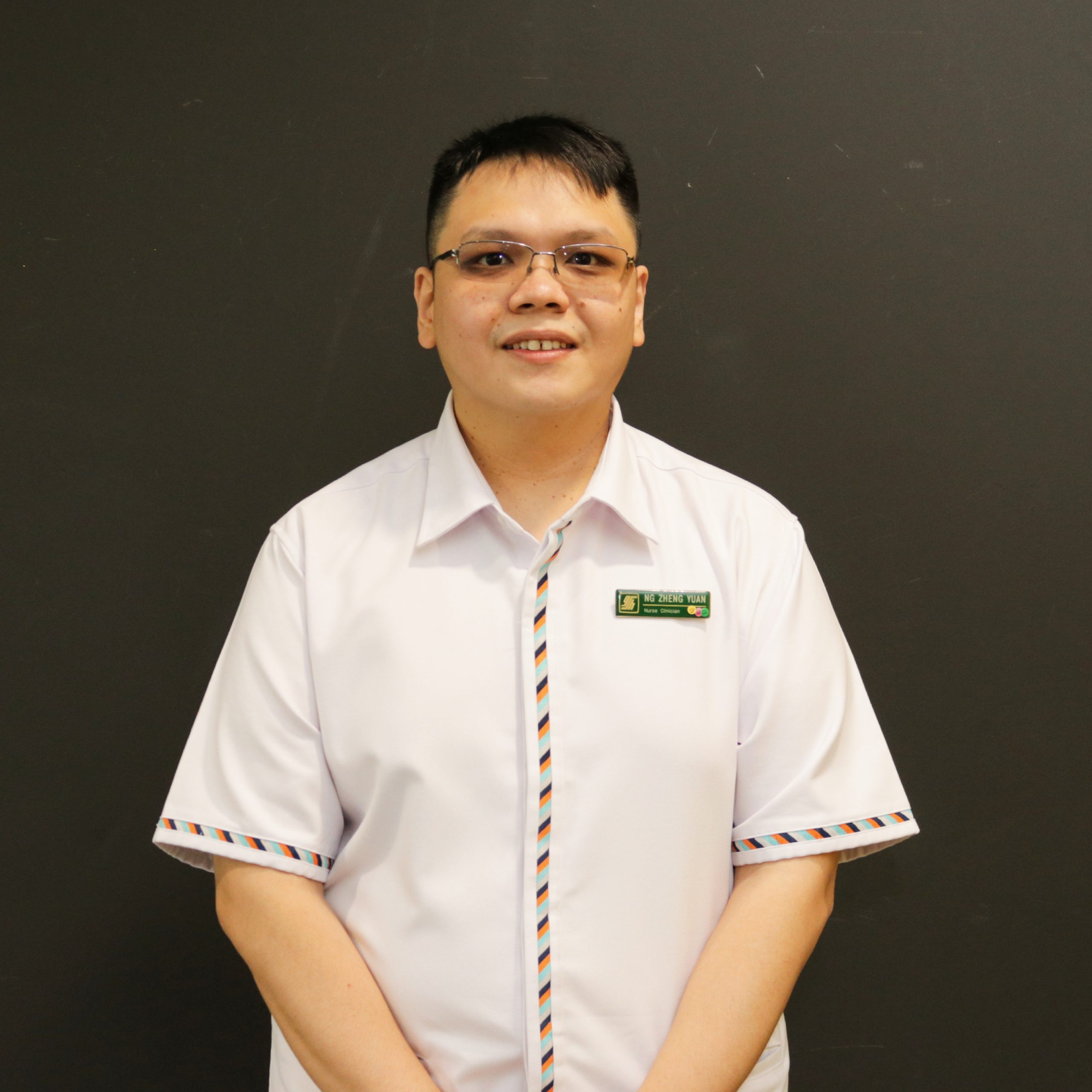 Ng Zheng Yuan (right), a Nurse Clinician who is mental health-trained, and a part of the SGH Peer Support team. Image courtesy of SGH.
Ng Zheng Yuan (right), a Nurse Clinician who is mental health-trained, and a part of the SGH Peer Support team. Image courtesy of SGH.
The nurse clinician says that he experiences the rewards of his 10-year career as a nurse almost daily.
“My favourite nursing memories are of seeing each patient that I have nursed being discharged and able to walk out of the hospital happily with their family.”
Stories of Us is a series about ordinary people in Singapore and the unique ways they’re living their lives. Be it breaking away from conventions, pursuing an atypical passion, or the struggles they are facing, these stories remind us both of our individual uniqueness and our collective humanity.
Top image from SGH and CGH
If you like what you read, follow us on Facebook, Instagram, Twitter and Telegram to get the latest updates.
